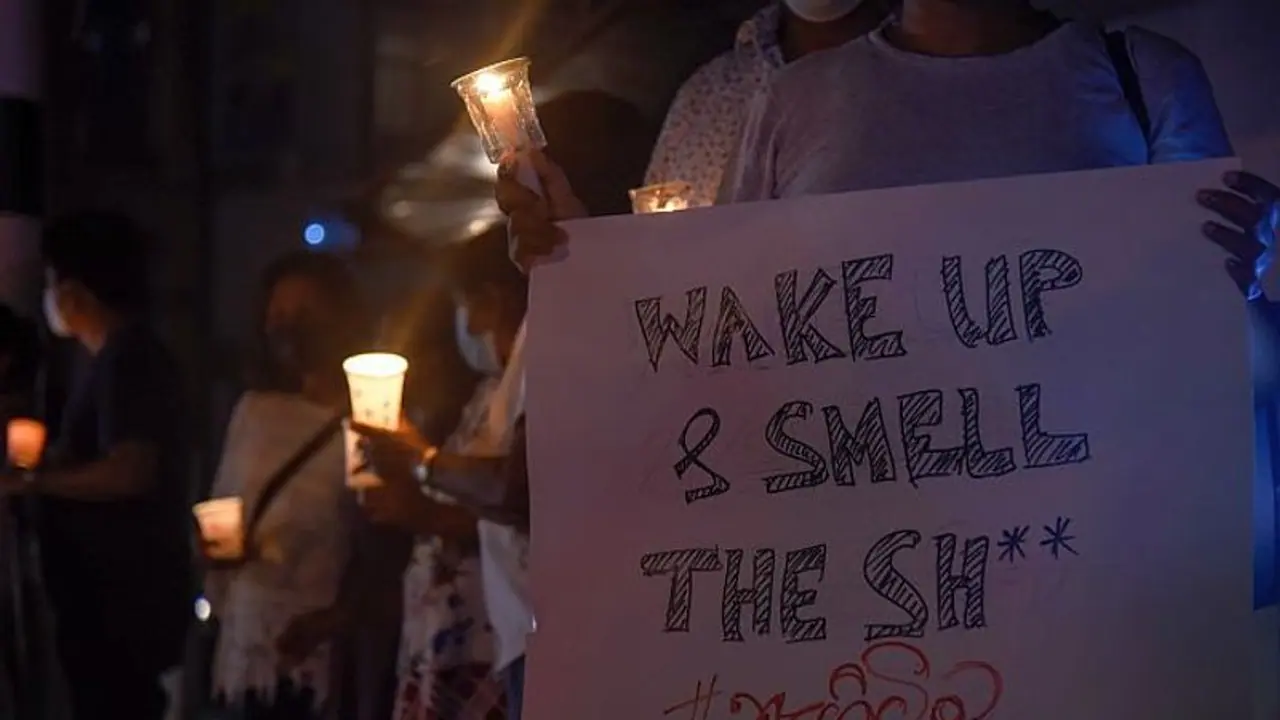Colombo wants to reset and fine-tune its foreign policy which has been more tilted towards a single country while India has a chance to penetrate Sri Lanka and regain its influence
Reiterating its commitment to being the first responder during a crisis in the subcontinent, India recently announced to provide a billion-dollar credit line to Sri Lanka which is in the midst of the worst economic crisis since 2000.

During Sri Lankan finance minister Basil Rajapaksa's visit to New Delhi a few days back, India's top leadership had assured him that New Delhi will always stand for its neighbouring and close country. This was Basil's second visit to India in the last four months.
Also Read: Sri Lanka economic crisis: Long queue at pumps, no electricity, more
Experts believed that this is an opportunity for India and Sri Lanka. Colombo wants to reset and fine-tune its foreign policy which has been more tilted towards a single country while India has a chance to penetrate Sri Lanka and regain its influence. New Delhi can also counter the growing Chinese control over the island nation.
Sri Lanka, which is mostly dependent on the tourism sector, is among the countries that are feeling the brunt of Covid-19, a mismanaged economy and policy paralysis.
Senior Assistant Professor for International Relations at the South Asian University in Delhi, Dhananjay Tripathi is of the view China would not want to help Sri Lanka and that is the reason why they have turned to New Delhi first.
"Hambantota and Colombo port city are already under the Chinese control. Sri Lanka has sought India's help. This means China does not want to help them much," Prof Dhananjay Tripathi said.
Stating that Sri Lanka already has a huge Chinese debt, the South Asian University professor said that the dependency on any single country is not good for sovereignty. So Sri Lanka is trying to balance it out.
A day ago, the Sri Lankan government under Gotayaba Rajapaksa had approached China seeking a new loan and buyer's credit from China for $2.5 billion to fight against the economic meltdowns.
Tripathi said, "China will not deny it. But it is interesting to see on what terms and conditions they would provide funds. Also, whether the Sri Lankan government would agree on those conditions."
Where Sri Lankan government got it wrong
Talking to Asianet Newsable, Ven Delthara Gnanananda, Director of the Eurasian International Institute at Colombo highlighted the government's wrong decision which has led to bad economics in the country.
Among a number of factors that have crippled the Sri Lankan economy, Ven Gnanananda found the poorly planned ban on agrochemicals as the main factor for low food production and ballooning prices. He said around 95 per cent of farmers had no idea about organic farming.
The government's organic-only policy has sowed the seeds of disaster.
On being asked about the efforts being made by the administration, he said the president, prime minister, opposition leaders and others have come together without any political blame game to discuss the crisis and find a solution.
How can India counter China's influence in Sri Lanka?
In the last decade, China has given over $5 billion for infrastructural projects like the construction of highways, ports, an airport and a coal power plant. Amidst its struggling economy, Colombo has to repay around $4 billion debt this year, including a $1 billion international sovereign bond in July.
However, Colombo's foreign exchange reserves declined to $2.31 billion in February.
Strategic expert Maj Gen Sudhakar Jee (R) said that India must urge the international community, including its QUAD partners to chip in and help keep China out of the crisis management by lending a grant of aid and subsidised loans to Sri Lanka on priority.
Last month, India had provided a short-term loan of $500 million to Sri Lanka for the purchase of petroleum products. In November 2021, over 100 tonnes of nano nitrogen liquid fertilisers was given to the island nation as the Rajapaksa government stopped the import of chemical fertilisers.
Image: Image: Civil activities during a candlelight protest against the ongoing power crisis in Sri Lanka. Photograph: Akila Jayawardana/NurPhoto via Getty Images
Also Read: Meet B Ravi Pillai, the first Indian businessman to own Rs 100 crore Airbus helicopter
